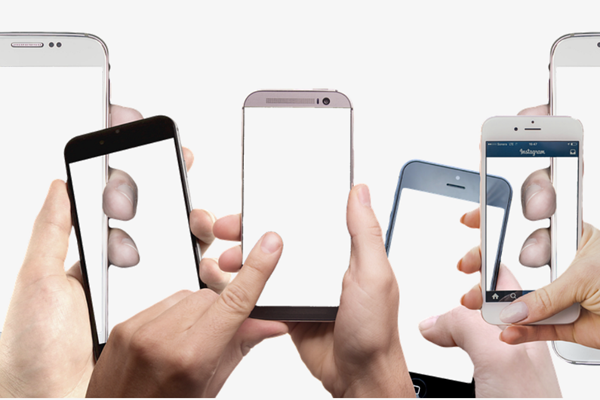
In the ever-evolving smartphone landscape, two giants have consistently captured the imagination of consumers worldwide: Apple’s iPhone and Samsung’s Galaxy phones. Both brands offer a wide range of cutting- edge features, sleek designs, and powerful performances. We’ll attempt to compare and contrast these two tech behemoths, delving into various aspects to help you make an informed decision.
Design and Build Quality
When it comes to design, both iPhone and Galaxy phones showcase remarkable craftsmanship. Apple’s iPhones typically feature a more minimalist, refined aesthetic with premium materials like glass and aluminum.
In contrast, Samsung’s Galaxy phones offer sleek, curved edges, and a wide array of color options. Galaxy phones often incorporate glass and metal constructions as well.
Display and Visual Experience
Both iPhone and Galaxy phones deliver stunning displays, but they take different approaches. iPhones usually feature Retina displays, known for their exceptional color accuracy and sharpness. On the other hand, Samsung’s Galaxy phones employ dynamic AMOLED displays, known for their vibrant colors, deep blacks, and high contrast ratios. Galaxy phones also tend to offer larger screens and higher resolutions, which can be appealing for multimedia consumption.
Operating System and User Experience
This is where the most significant distinction lies. iPhones operate on Apple’s iOS, known for its intuitive interface, seamless integration with other Apple devices, and strong emphasis on privacy and security. Galaxy phones, meanwhile, run on Google’s Android OS, customized with Samsung’s One UI. Android offers more flexibility and customization options, making it a preferred choice for tech enthusiasts.
Performance and Hardware
Both iPhone and Galaxy phones boast powerful hardware components. iPhones, however, often excel in terms of optimization and efficiency, providing smooth performance even with comparatively lower specifications. Apple’s A-series chips consistently push the boundaries of mobile processing power. Galaxy phones, on the other hand, often offer more diverse options, with some models featuring cutting- edge Snapdragon or Exynos processors, ample RAM, and expandable storage.
Camera Capabilities
The camera capabilities of both iPhone and Galaxy phones are highly regarded. iPhones are renowned for their excellent image processing algorithms, producing vibrant and true-to-life images. Apple also places a strong emphasis on computational photography and features like Night Mode and Deep Fusion.
Samsung’s Galaxy phones, on the other hand, offer a versatile camera system with a range of lenses, including ultrawide, telephoto, and macro. They excel in low- light photography and provide an array of creative shooting modes. Ecosystem and Integration: Apple’s ecosystem, consisting of iPhones, Macs, iPads, and other devices, offers a seamless integration experience. Users can easily transfer files, messages, and calls across devices. The Galaxy ecosystem, although not as tightly integrated, still offers several features like Samsung DeX, which enables a desktop-like experience, and SmartThings for smart home integration.
Conclusion
In the battle of iPhone vs. Galaxy phones, there is no definitive winner. Both Apple and Samsung have created exceptional smartphones that cater to different preferences and priorities.
If you value a user-friendly interface, privacy, and a well-integrated ecosystem, the iPhone may be the right choice. On the other hand, if customization, hardware diversity, and a wider range of features appeal to you, Galaxy phones will likely satisfy your needs.
Ultimately, the decision boils down to personal preferences and priorities, so choose the device that aligns best with your requirements and enhances your smartphone experience.
